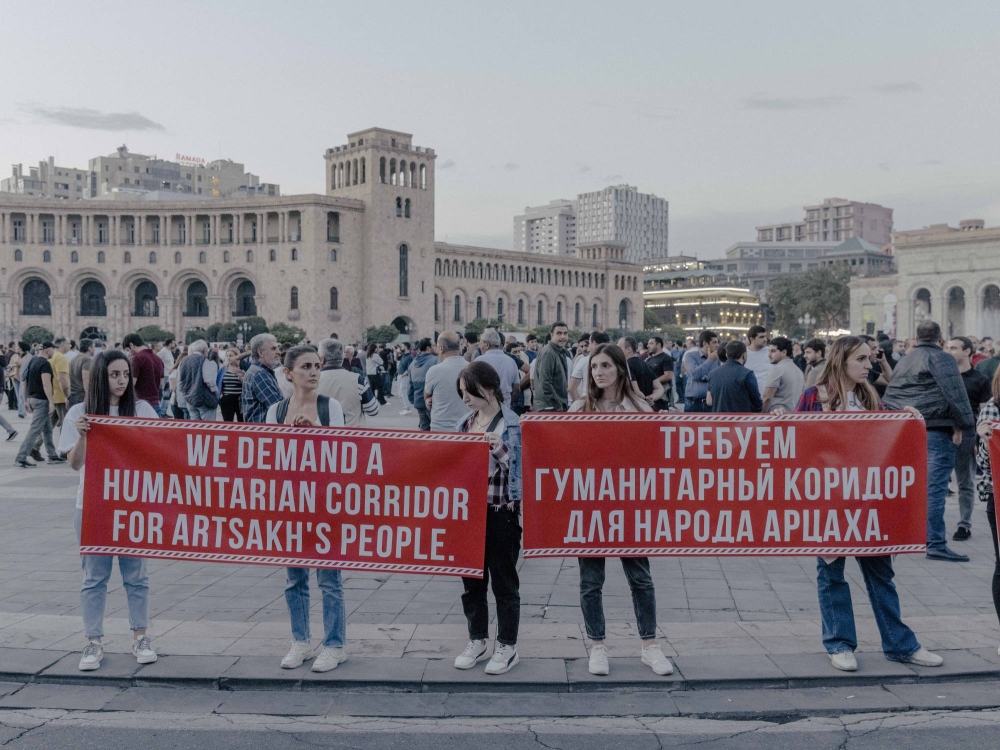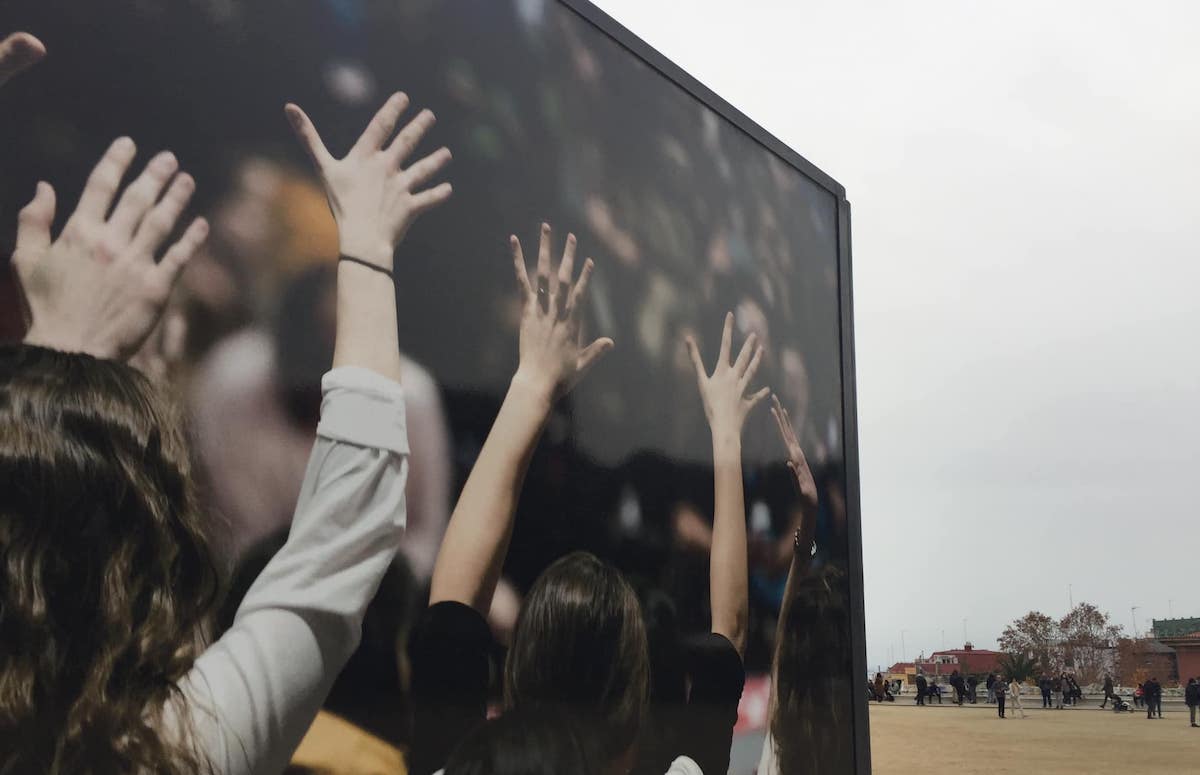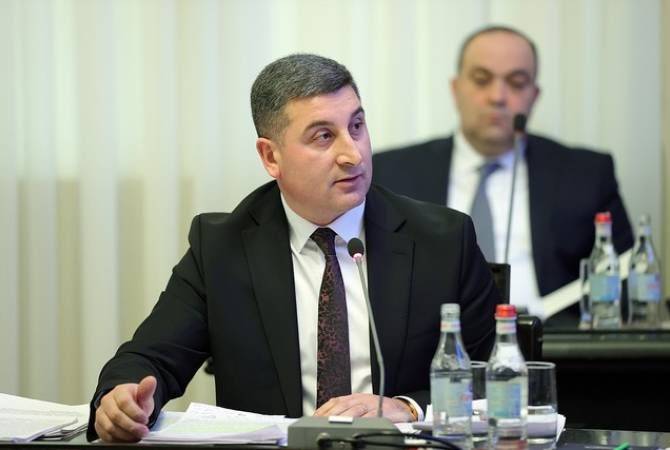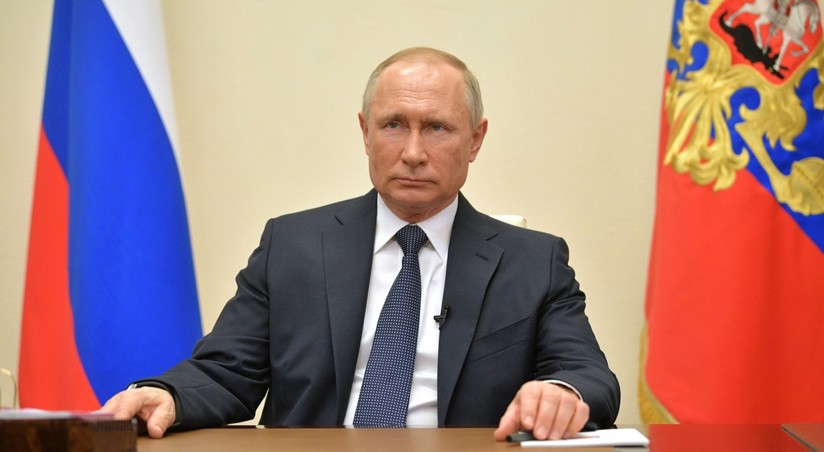STEPANAKERT, Azerbaijan, Sept 25 (Reuters) – Turkish President Tayyip Erdogan will meet Azerbaijani President Ilham Aliyev on Monday as ethnic Armenians fled the breakaway region of Nagorno-Karabakh after a lightening military operation that has changed the contours of the South Caucasus.
The Armenians of Karabakh, a territory internationally recognised as part of Azerbaijan, were forced into a ceasefire last week after a 24-hour military operation by the much-larger Azerbaijani military.
The leadership of the 120,000 Armenians who call Karabakh home told Reuters on Sunday that they did not want to live as part of Azerbaijan and that they would leave for Armenia because they feared persecution and ethnic cleansing.
As of 5 a.m. (0100 GMT) on Monday, more than 2,900 people from Nagorno-Karabakh had crossed into Armenia, the government of Armenia said as it rushed to prepare for thousands of refugees.
Erdogan will pay a one-day visit to Azerbaijan’s autonomous Nakhchivan exclave – a strip of Azeri territory nestled among Armenia, Iran and Turkey – to discuss with Aliyev the situation in the Karabakh region, the Turkish president’s office said.
“Bilateral relations between Turkey and Azerbaijan will be discussed, and views on current global and regional matters, particularly the latest developments in Karabakh, will be exchanged,” the presidency said.
They will attend a ceremony for a gas pipeline that will bring gas to Nakhchivan and inaugurate a newly modernised military installation in the exclave, the Turkish presidency said.
In the Karabakh capital, known as Stepanakert by Armenia and Khankendi by Azerbaijan, those with fuel started on Sunday night to drive down the Lachin corridor toward the border with Armenia, according to a Reuters reporter.
Reuters pictures showed dozens of cars driving out of the capital toward the corridor’s mountainous curves.
The Azerbaijani victory changes the delicate balance of power in the South Caucasus region, a patchwork of ethnicities crisscrossed with oil and gas pipelines where Russia, the United States, Turkey and Iran are jostling for influence.
KARABAKH
Nagorno-Karabakh, known as Artsakh by Armenians, lies in an area that over centuries has come under the sway of Persians, Turks, Russians, Ottomans and Soviets.
It was claimed by both Azerbaijan and Armenia after the fall of the Russian Empire in 1917. In Soviet times it was designated an autonomous region within Azerbaijan.
As the Soviet Union crumbled, the Armenians there threw off nominal Azerbaijani control and captured neighbouring territory in what is now known as the First Karabakh War. From 1988-1994 about 30,000 people were killed and more than a million people, mostly Azerbaijanis, displaced.
Azerbaijan gained back swathes of territory in and around Nagorno-Karabakh in a war in 2020.
Erdogan, who backed Azerbaijan with weaponry in the 2020 conflict, said last week he supported the aims of the Azerbaijan’s latest military operation but played no part in it.
Armenia says more than 200 people were killed and 400 wounded in last week’s Azeri operation. Armenian Prime Minister Nikol Pashinyan, who is facing calls to resign from protesters in Yerevan, has blamed Russia for failing Armenia.
Pashinyan has warned that some unidentified forces were seeking to stoke a coup against him and has accused Russian media of engaging in an information war against him.
The United States has said it was deeply concerned by Azerbaijan’s military operation, which Baku launched on Sept. 19 after what it said were terrorist attacks on its civilians by Karabakh fighters.
On Sunday, Azerbaijan’s defence ministry said it had confiscated more military equipment from Armenian separatists, including rockets, artillery shells, mines and ammunition.
Russian peacekeepers in Karabakh said the fighters had given up 1,200 weapons and 130,000 units of ammunition, and that 125 tonnes of food and 65 tonnes of fuel had been delivered.
Armenia called for an immediate deployment of a U.N. mission to monitor human rights and security in the region.
Additional reporting by Lidia Kelly in Melbourne;
Writing by Lidia Kelly and Guy Faulconbridge;
Editing by Michael Perry and Gerry Doyle
Our Standards: The Thomson Reuters Trust Principles.









/cloudfront-us-east-2.images.arcpublishing.com/reuters/X3L5BPOAMVPJRFZQTXQ65RECWM.jpg)